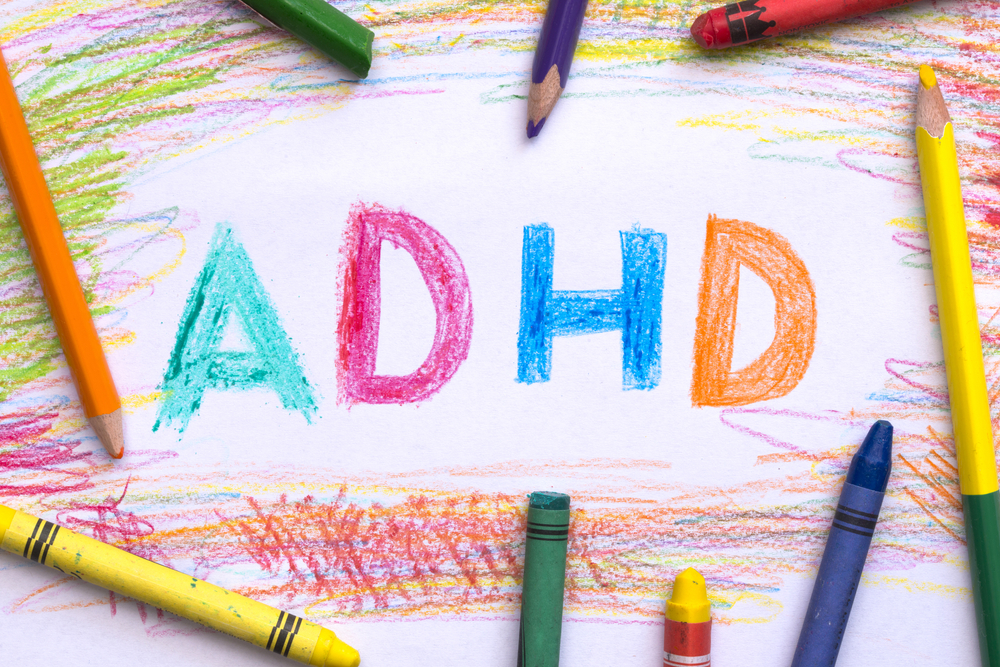Attention-deficit hyperactivity disorder (ADHD), previously referred to as attention deficit disorder (ADD), is listed in the Diagnostic and Statistical Manual of Mental Disorders, Fifth Edition (DSM-5) as a chronic, neurological disorder. ADHD is characterized by three main symptoms: inattention, hyperactivity, and impulsivity. The Centers for Disease Control and Prevention (CDC) further describes attention-deficit hyperactivity disorder as an inability to control impulsive behaviors, difficulty focusing and/ or paying attention, and/ or being overly active. According to the Centers for Disease Control and Prevention (CDC), nearly 3.3 million children between ages 12-17 have been diagnosed with ADHD in America. Every teenager is unique, and each will require a customized treatment plan that is reflective of his or her distinct needs. Still, treatment plans for ADHD are typically comprised of a combination of certain psychotherapeutic modalities along with medication. Surprisingly, due to a lack of formal training most doctors and mental health professionals know little about the diagnosis and treatment of ADHD at any point in the life cycle. This gap in expertise can cause doctors to make any number of mistakes. The following ten examples illuminate some of mistakes doctors make specifically regarding the use of medication in ADHD treatment:
- A doctor misdiagnoses ADHD as bipolar disorder, and prescribes antidepressant or mood stabilizing medications to treat bipolar disorder instead of ADHD.
- A doctor does not recognize chronic insomnia as the hyperarousal of ADHD and avoids prescribing stimulant medication because he or she thinks it will worsen insomnia rather than making it better.
- A doctor views ADHD medication as last resort method of treatment. The most recent Standard of Care from the American Academy of Child and Adolescent Psychiatry removed its recommendation for multi-modal therapy. The AACAP concluded that, if the child gets a robust response to medication, “medication alone is satisfactory.”
- A doctor favors and only prescribes one type of medication. There are many medication options and there is no way to predict which type a patient will respond to best.
- A doctor uses an average starting dose approach rather than titrating the dose of ADHD medication. Just as a physician is unable to predict which medication will work best, they also cannot predict an optimal dosage.
- A doctor will not prescribe a stimulant medication, like Adderall, if a patient has hypertension, but experts assert that hypertension alone does not preclude a patient from taking ADHD medication.
- A doctor does not optimize medication. The Multimodal Treatment of Attention Deficit Hyperactivity Disorder Study (MTA) highlights one highly common treatment pattern: “the prescribing clinician increased the dose of one medication until the first sign of positive benefits and then stopped raising the dose, leaving more than half the benefits of medication on the table.”
- A doctor doses the medication according to weight. The proper dose has nothing to do with one’s weight, but rather is determined by how efficiently the medication is absorbed from the GI tract.
- A doctor does not re-evaluate dosage. The American Academy of Pediatrics recommends that the dose of medication be re-determined once a year.
- A doctor discontinues medication at the first sign of difficulty. Prior to ruling out the usefulness of ADHD medication, it is important for a physician to consider and address other potential neurobiological reasons that may have affected its efficacy.
For Information and Support
Every family in need of mental health treatment must select a program that will best suit the needs of their family. When one member of a family struggles, it impacts everyone in the family unit. To maximize the benefits of treatment we work closely with the entire family to ensure that everyone is receiving the support they need through these difficult times. Seeking help is never easy, but you are not alone! If you or someone you know needs mental health treatment, we strongly encourage you to reach out for help as quickly as possible. It is not uncommon for many mental health difficulties to impact a person’s life, long term. Pursuing support at the beginning of one’s journey can put the individual in the best position to learn how to manage themselves in a healthy way so they can go on to live happy and fulfilling lives.
OUR KNOWLEDGEABLE ADMISSIONS TEAM CAN BE REACHED 24/7 AT INFO@PACIFICRTC.COM OR CALL: 800-531-5769






